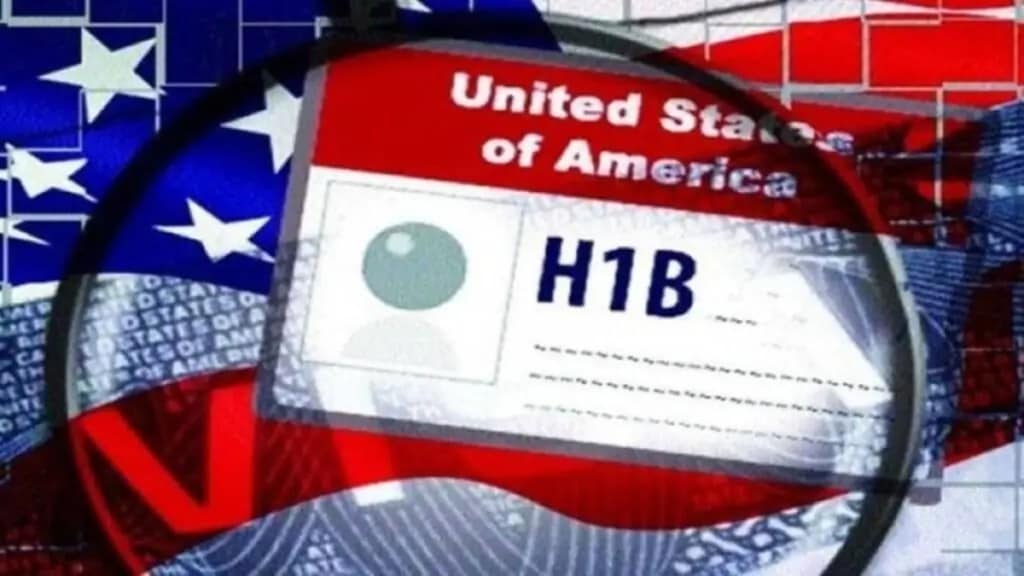The H-1B visa rules for hiring foreign workers in US firms are expected to undergo significant changes in the near future. The US is expected to introduce a new wage-based system to reform the H-1B selection process.
The plan of the New Wage-Based System is to establish a wage-based allocation process and choose H-1B candidates based on their earnings; the higher the compensation paid by the US firm, the better the chances of obtaining an H-1B visa.
The proposed rule’s immediate impact may be felt more by employees with lower salaries compared to those with higher skills and salaries.
The H-1B Visa Program
The H-1B visa program, despite criticism from Americans for allegedly allowing foreign workers to take over jobs, is highly popular outside the US, as it provides thousands of foreign workers with opportunities to work in top US companies.
But unlike other work visa schemes for non-immigrants in US, the H-1B visa enables companies and other employers in the United States to temporarily employ foreign workers in occupations requiring the theoretical and practical application of a body of highly specialized knowledge, as well as a bachelor’s degree or higher in a directly related specific specialty as a minimum for entry into the occupation in the United States.
H-1B specialist vocations can include architecture, engineering, mathematics, physical sciences, social sciences, medical and health, education, business specialties, accounting, law, theology, and the arts.
Why Americans are against H-1B visas
Trump won his second term of presidency largely on the back of MAGA – Make America Great Again slogan. Trump wants more Americans to be working in US firms and the voice against H-1B foreign workers is growing. Social media is full of voices against foreign workers taking American jobs and many are calling to end the H-1B visa program.
Indian workers are reported to corner a big share of H-1B visa. Between October 2022 and September 2023, 72.3% of all H-1B visas were issued to Indian skilled workers.
Many industry experts blame the selection process and there have been several court cases on big tech firms gaming the system to get more H-1B visas for hiring foreign workers, ignoring Americans.
New H-1B Selection Process
The US Department of Homeland Security and USCIS have proposed a new rule titled ‘Weighted Selection Process for Registrants and Petitioners Seeking To File Cap-Subject H-1B Petitions,’ which has already been accepted by the White House.
The H-1B visa Weighted Selection Process details are not yet public, but it is likely to incorporate wage levels, education qualifications, or merit-based factors.
Wage Levels for H-1B Jobs
The US Department of Labor uses a four-level wage system for H-1B positions, based on the worker’s experience and job requirements. Level 1 wages are for new entry-level workers, Level 2 for experienced workers, Level 3 for fully competent professionals, and Level 4 for experts or senior-level professionals.
USCIS will rank and select registrations based on the highest wage level, starting with wage level IV and descending to wage levels III, II, and I.
The primary objective of the proposals was to make the registration selection process prioritize wage levels. That would, therefore, make employers offer higher wages for positions requiring higher skills of skilled foreign workers.
The wage-based allocation process of H-1B visas is intended to end abuse of the H-1B program to fill lower-paying, lower-skilled positions, which is a significant issue with Americans today.
Impact on Foreign Employees
What this means is that the chances for low-level employees earning lower salaries may be slim, while only individuals with specialized talents who have bee offered a higher wage package by US corporations will stand a higher chance to be eligible for H-1B visas.
However, as full details are not out, there could be a change in the minimum salary level for non-cap H-1B visa slots. An exempt H-1B nonimmigrant is an H-1B worker who meets statutory standards such as receiving $60,000 annual wages or obtaining a master’s or higher degree related to their intended employment.
The wage-based allocation process of H-1B visas could hit the early-career professionals and recent graduates with entry-level salaries. Despite holding advanced degrees, the odds of H-1B selection may significantly drop for them. At the same time, experienced candidates with higher wages will get priority in the selectin process of H-1B visas.
Big tech firms may still be able to offer higher salaries to foreign workers but mid-sized US firms including start-ups may feel the pinch in hiring Indians and other foreign workers.
Trump’s Second Attempt to Revamp H-1B
A similar-looking proposal titled ‘Modification of Registration Requirement for Petitioners Seeking To File Cap-Subject H1B Petitions’ was initially floated by the Department of Homeland Security in January 2021, during Trump’s first term as President.
At that time, the lottery system was prevalent in the selection process of H-1B registrations. However, the lottery process has been discontinued and the beneficiary-centric process is currently being followed.
In the 2021 proposals, registrations were to be chosen based on the highest prevailing wage level for the relevant Standard Occupational Classification code and area of intended employment.
Going Forward
Currently, Congress limits the number of new H-1B cases that can be approved annually. The limit of H-1B applicants is 65,000, while those with a U.S. master’s degree or higher receive an additional 20,000. The overall H-1B cap is set at 85,000 annually.
If implemented, in the wage-based allocation process of H-1B visas, the U.S. Citizenship and Immigration Services (USCIS) could rank registrations based on wage, prioritizing the highest-paid applicants until the annual cap is filled.
The wage-based system could be introduced for the Fiscal Year 2027 H-1B filing season, starting in March 2026, if approved and implemented over the next few months.
